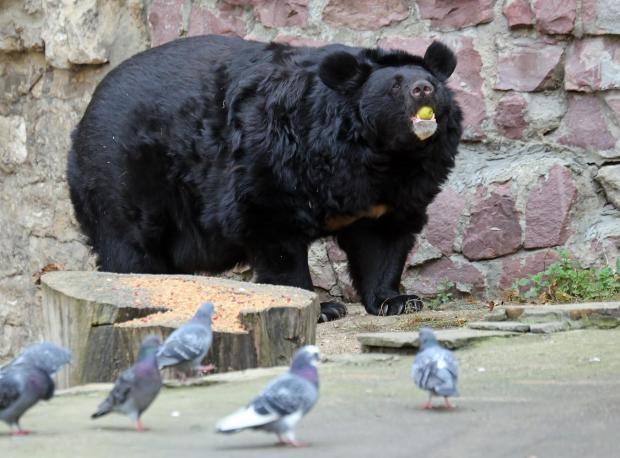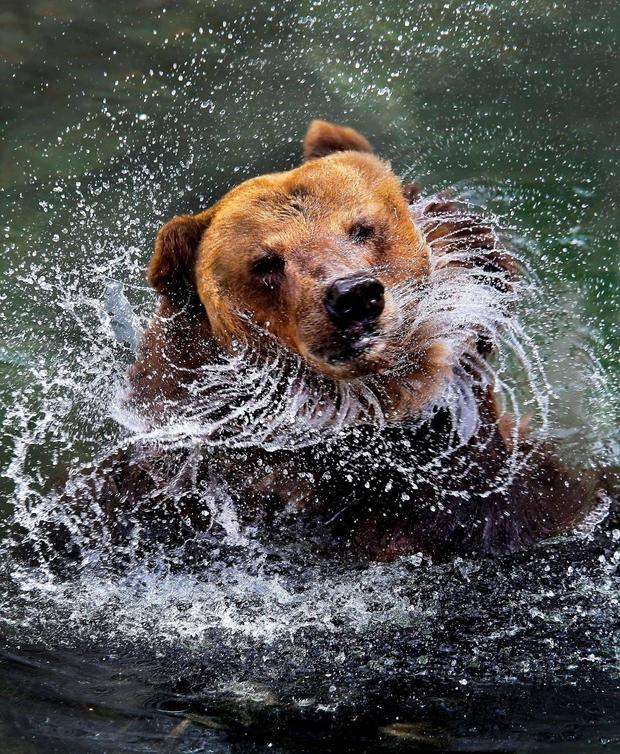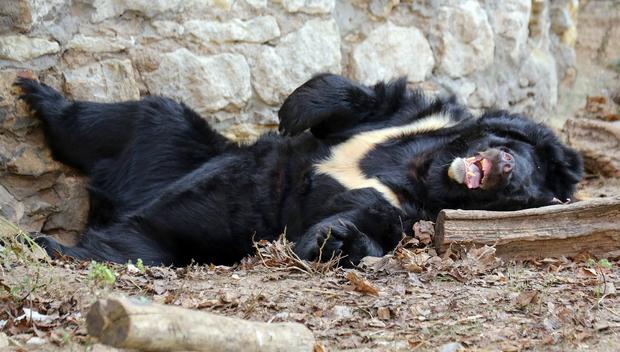What Month Do Bears Come Out of Hibernation
Climate change is causing bears to come out of hibernation a month early — which can be dangerous for humans
/ CBS News
U.S. on track for warmest winter on record
Rising temperatures are affecting ecosystems and wildlife across the globe — even causing some bears to come out of hibernation early. Connecticut's Beardsley Zoo reports that this year it has seen an emergence of its native black bears in early March — almost a month earlier than usual.
Bears normally hibernate to survive the winter, a time when food and water are scarcer in the wild. As soon as temperatures start warming in the spring, bears come out of their dens and start searching for food. But this year's record warm winter has thrown off their natural patterns in different parts of the world.

"Bears have adapted to limited food resources by hibernating when food supplies run low, and coming out of hibernation when food supplies typically return," Steve Smith, the director of animal care at ECHO Leahy Center for Lake Champlain in Vermont, told CBS News. "When we have unusually warm winters, bears are triggered to come out of hibernation but their food resources have not yet returned. The bears are adjusting to climate change quicker than the plants they depend on for food."
This issue could lead hungry bears into confrontations with humans as they desperately search for something to eat.
"Bears are resourceful and will then seek human food sources like pet food or bird seed they can access, entering storage sheds, garages and porches — which puts them into conflict with people," Connecticut's Beardsley Zoo curator of education Jim Knox told CBS News.
Smith added that bears, forced by the need to find food, may acclimate to their proximity to human households — at which point an animal could be perceived as a "problem bear." Animal control workers can relocate a bear as a short-term solution, but if bears keeps returning to human habitation for food, they might risk being put down.

North America isn't the only part of the world to notice anomalies in bears' hibernation cycle.
In Finland, while bears at the Helsinki Zoo woke up at a normal time of the year, they went to sleep a month later than usual, according to Hanna-Maija Lahtinen, the zoo's mammal curator. A warmer winter had the bears going into hibernation right before Christmas in late December, instead of their normal November. As long as they're fed, emerging earlier doesn't necessarily have a negative impact on them, Lahtinen added.
The Moscow Zoo told CBS News that its bears — one brown bear and two Himalayan black bears — all woke up a whole month sooner than expected, but the zoo said there was no apparent impact on the bears' health or behavior.
"Our zoologists were preparing for the fact that because of the abnormally warm winter, bears will wake up earlier," the general director of the Moscow Zoo said in a statement. "Therefore, in February, experts monitored animals around the clock, and after their awakening, they began to prepare animals for walks in the outdoor aviary."
Now that the bears have woken up, zookeepers will slowly wean the animals back onto low-calorie meals such as berries and eventually transition them to more wholesome foods like meat and nuts.
Moscow has been having its warmest winter since modern record-keeping began in 1891, Russia's Hydrometeorology Center announced last week. In February, "heat records covered almost all of Russia," the center said.
"It was by far the warmest winter on record in Europe's history. The average temperature from December through February was an astonishing 6 degrees above normal," CBS News meteorologist and climate specialist Jeff Berardelli said. "To see such widespread and extreme winter warmth is an extraordinarily rare if not unprecedented event, which has the fingerprints of human-caused climate change all over it."

In Siberia, the unusually warm winter also kept some bears in a zoo there from hibernating and forced others out of hibernation, the state-run TASS news agency reported.
"Bears waking up weeks earlier than they should is yet another canary in the coal mine, a strong biological indicator of an extremely warm winter in various parts of the world, and long-term, a sign of how humans are becoming a force of nature, unintentionally manipulating nature's natural cycles," Berardelli said.
Natacha Larnaud

Natacha Larnaud is a social TV producer for CBS News.
Thanks for reading CBS NEWS.
Create your free account or log in
for more features.
What Month Do Bears Come Out of Hibernation
Source: https://www.cbsnews.com/news/climate-change-bears-come-out-of-hibernation-month-early/